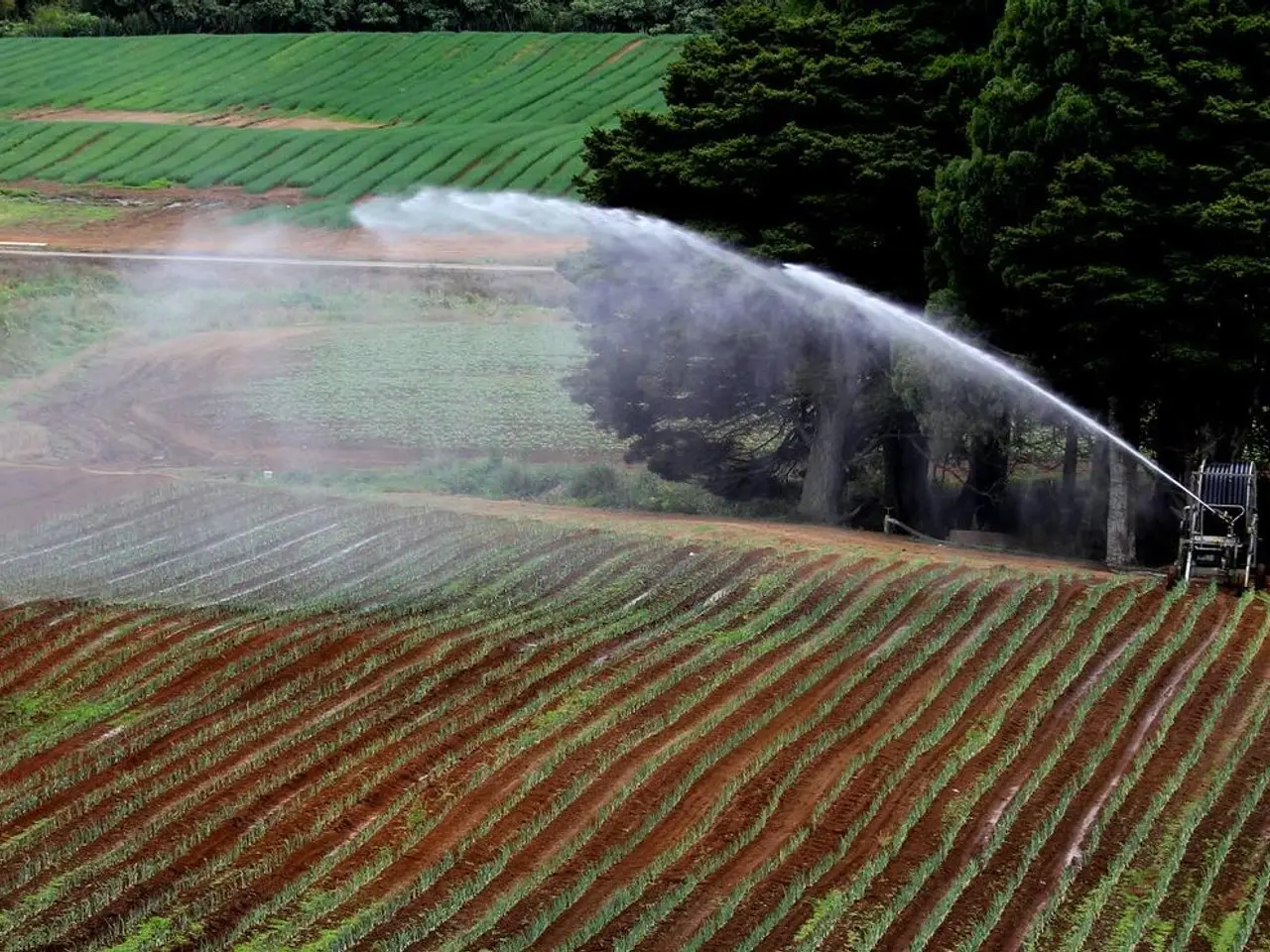Organic Farming and Eco-Tourism Enterprise by Vijay Dongare: Exploring His Utilization of a Rs 30-35 Lakh Business Income to Craft a Model for Sustainable Agriculture Practices
Vijay Dongare Embraces Organic Farming and Eco-Tourism in Dapoli
In a unique blend of business and nature, Vijay Dongare, a 57-year-old former electrical engineering business owner, has transitioned into organic farming and eco-tourism in Dapoli, Maharashtra. The Konkan region now hosts a model that emphasizes biodiversity, traditional products, and minimal ecological disturbance.
Dongare, who currently runs an engineering business generating a turnover of Rs. 30-35 lakh, returned to his ancestral land to reconnect with nature and revive traditional farming practices. He consciously chose organic methods, avoiding pesticides and fertilizers, and maintained the natural jungle terrain without cutting trees or altering the landscape.
His farming focus is not driven by high yields but by sustainability and protecting the land for the future. Dongare has planted over 750 cashew nut trees, Alphonso and Ratna mango varieties, and recently started betel leaf plantations, all fostering biodiversity and ecological balance.
Dongare believes most land degradation happens due to over-clearing and forcing unnatural cropping cycles. He advocates for minimal land disturbance, natural input use, and regenerative practices, actively mentoring nearby farmers and community members.
His 100 mango trees have already received positive responses for taste and quality from neighbours and early buyers. Dongare does not use pesticides, fertilizers, or growth boosters in his farming practices.
In the future, Dongare plans to include mango preserves, betel leaf offerings, and other forest-friendly, farm-sourced items in his product line. He aims to organize farmer learning retreats in Dapoli and is planning to launch his own line of natural products, starting with traditionally roasted cashew nuts.
Dongare's wife and daughter are also interested in joining the rural wellness retreat initiative, aiming to create a holistic space that promotes natural health, local food systems, and environmental awareness. Together, they hope to turn Dapoli into a hub for sustainable living and eco-tourism.
Vijay Dongare is now a member of the Global Farmer Business Network (GFBN), connecting him with like-minded individuals across the globe who are committed to sustainable farming practices and eco-friendly initiatives. His journey serves as an inspiration for those seeking to harmonize economic activity with respect for nature.
- Vijay Dongare's transformation from an electrical engineering business owner to an organic farmer demonstrates the intersection of entrepreneurship and sustainable living.
- Dongare's adoption of organic farming methods showcases a shift towards healthier food-and-drink choices and eco-friendly business practices.
- By prioritizing traditional farming practices over high yields, Dongare is promoting a more responsible approach to small-business operations.
- In the housing market and real-estate sector, focus on sustainable living could be a promising trend, as demonstrated by Dongare's organic farm-turned-eco-tourism business.
- Vijay Dongare's farming approach, which avoids pesticides and fertilizers, could inspire other entrepreneurs to invest in organic and natural ingredients for their food-and-drink ventures.
- Dongare's home-and-garden practices may extend to other aspects of his lifestyle, such as promoting energy-efficient appliances and water-saving methods for responsible consumption.
- Dongare's transition from conventional business to eco-tourism aligns with personal-growth and career-development pursuits that prioritize environmental consciousness and community development.
- Casinos and gambling establishments, as a part of the hospitality industry, could embrace responsible-gambling practices and adopt more sustainable business strategies, as showcased by Dongare's initiative.
- Adventure travelers seeking unique off-the-beaten-path destinations may find Dongare's eco-tourism venture in Dapoli an appealing option.
- Budget travelers can also appreciate Dongare's model, as it promotes local food systems and could offer cost-effective, authentic experiences.
- Dongare's vision for turning Dapoli into a hub for sustainable living and eco-tourism aligns with the growing interest in healthy-cooking and travel that prioritizes environmental and social responsibility.
- As a member of the Global Farmer Business Network (GFBN), Dongare can engage in education-and-self-development opportunities, furthering his knowledge on sustainable agriculture and eco-friendly initiatives while encouraging similar practices in sports and sports-betting industries.





